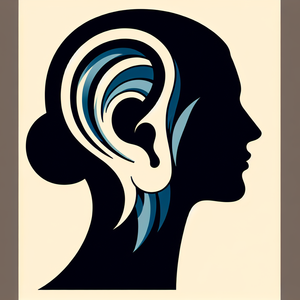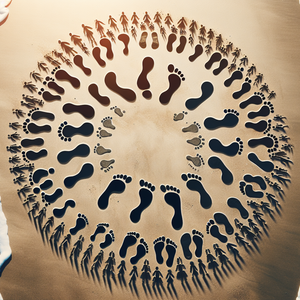Breaking Barriers in Healthcare Careers: Inspiring Stories of Triumph and Representation

Representation in healthcare is crucial for several reasons. First, a workforce that reflects the demographics of the patient population fosters trust and rapport. Research has shown that patients are more likely to seek care and adhere to treatment plans when they feel understood and represented by their healthcare providers. A diverse healthcare workforce not only improves patient satisfaction but also promotes equitable treatment and culturally sensitive care. In a world where healthcare disparities persist, the call for greater representation is more urgent than ever.
Inspiring Stories of Overcoming Challenges
Dr. Maria Gonzalez, a first-generation immigrant from Mexico, exemplifies perseverance in the face of adversity. Dr. Gonzalez faced multiple challenges in her pursuit of a medical degree, including financial instability and language barriers. Through determination and mentorship programs aimed at minority students, she overcame these obstacles and became a respected family medicine physician. Today, Dr. Gonzalez advocates for immigrant health issues and has established a scholarship fund to support aspiring medical students from similar backgrounds. Her journey underscores the importance of mentorship and community support in breaking down barriers.
Nate Johnson
Nate Johnson's story highlights the role of personal experience in shaping a professional path. Growing up in a low-income neighborhood, Nate faced the stigma associated with mental health issues. After confronting his own challenges, he decided to become a mental health counselor to help others navigate similar struggles. Despite skepticism from peers about his career choice, Nate persevered, earning his degree and running workshops aimed at destigmatizing mental health in underserved communities. His work demonstrates how lived experiences can fuel passion and inspire change within healthcare.
Aisha Patel
Aisha Patel’s journey into nursing illustrates the challenges faced by individuals from minority backgrounds. As a Muslim woman, Aisha encountered cultural biases and stereotypes while pursuing her career. Instead of retreating in the face of adversity, she used her experiences to educate her colleagues about cultural sensitivity in patient care. Aisha’s advocacy for diversity training in nursing schools has led to meaningful curriculum changes, ensuring that future nurses are better equipped to serve diverse patient populations. Her story is a testament to the power of resilience and advocacy.
The Ripple Effect of Diverse Healthcare Professionals
The experiences of Dr. Gonzalez, Nate, and Aisha reflect a broader ripple effect that diverse healthcare professionals can have in their communities. When individuals from various backgrounds succeed in healthcare, they inspire others to pursue similar paths, creating a cycle of empowerment. This representation is particularly significant in the context of healthcare disparities, as diverse teams have been shown to improve patient outcomes. By offering varied perspectives and approaches to care, these teams enhance the quality of service provided to all patients.
Strategies for Aspiring Healthcare Professionals
For those looking to break into healthcare, several key strategies can facilitate their journey: Seek Mentorship: Connecting with mentors who understand the unique challenges faced by individuals from diverse backgrounds can provide invaluable guidance and support. Mentorship programs can help aspiring professionals navigate the complexities of their chosen fields. Engage in Community Programs: Participation in community health initiatives can offer hands-on experience and help build meaningful connections within the industry. These experiences can also bolster resumes and provide insights into the specific needs of various communities. Pursue Education and Training: Many organizations offer scholarships and programs aimed at increasing diversity in healthcare. Aspiring professionals should actively seek out these resources to alleviate financial burdens and gain access to educational opportunities.
The stories of individuals like Dr. Maria Gonzalez, Nate Johnson, and Aisha Patel serve as powerful reminders that the journey to a successful healthcare career can be challenging but is ultimately attainable with resilience and support. By breaking down barriers and advocating for representation, we can create a more inclusive healthcare workforce that benefits everyone. As we continue to uplift and empower aspiring healthcare professionals from diverse backgrounds, we pave the way for a future where all patients receive care from providers who genuinely understand their unique experiences and needs. It is a collective responsibility to ensure that the healthcare landscape reflects the rich diversity of the communities it serves, ultimately leading to better health outcomes for all.
Community Health Worker (CHW)
Nonprofit organizations, public health departments, and community health centers
Core Responsibilities
Serve as a liaison between healthcare providers and the community to improve access to services.
Conduct outreach and education programs focused on health promotion and disease prevention.
Assist patients in navigating healthcare systems and accessing social services.
Required Skills
Strong communication and interpersonal skills to build trust within diverse communities.
Knowledge of local health resources and cultural competencies to address specific community needs.
Experience in community organizing or public health initiatives is a plus.
Diversity and Inclusion Officer in Healthcare
Hospitals, healthcare systems, and health insurance companies
Core Responsibilities
Develop and implement strategies to promote diversity and inclusion within healthcare organizations.
Conduct training sessions on cultural competence and unconscious bias for healthcare staff.
Analyze diversity metrics and create reports to track progress and effectiveness of initiatives.
Required Skills
Strong analytical skills to interpret data and identify areas for improvement.
Experience in human resources or organizational development, particularly in a healthcare setting.
Excellent communication and facilitation skills to engage diverse groups.
Mental Health Counselor with a Focus on Cultural Competence
Community mental health centers, nonprofit organizations, and educational institutions
Core Responsibilities
Provide counseling services to individuals from diverse backgrounds, addressing issues related to mental health stigma.
Develop culturally sensitive treatment plans that consider the patient's cultural context and experiences.
Conduct workshops and support groups aimed at increasing mental health awareness in underserved communities.
Required Skills
Licensed as a professional counselor or therapist with training in multicultural counseling.
Strong understanding of community resources and support networks for mental health.
Ability to create a safe, non-judgmental space for clients to share their experiences.
Public Health Educator Specializing in Health Disparities
Government agencies, public health nonprofits, and research institutions
Core Responsibilities
Design and implement educational programs that address health disparities within specific populations.
Collaborate with community organizations to raise awareness about health issues and available resources.
Conduct assessments to evaluate the effectiveness of health education initiatives and adjust programs accordingly.
Required Skills
Experience in public health or health education, with a focus on underserved populations.
Strong presentation and public speaking skills to effectively convey information to diverse audiences.
Knowledge of health policy and its impact on community health outcomes.
Nurse Educator with a Focus on Cultural Competency Training
Nursing schools, hospitals, and healthcare training programs
Core Responsibilities
Develop and teach nursing curriculum modules that emphasize cultural sensitivity and diversity in patient care.
Mentor nursing students and new graduates on best practices for serving diverse populations.
Collaborate with healthcare institutions to ensure alignment between educational programs and community needs.
Required Skills
Registered Nurse (RN) with a master’s degree in nursing or education.
Experience in clinical practice and teaching, particularly with a focus on culturally competent care.
Strong communication skills and the ability to engage students from various backgrounds.


